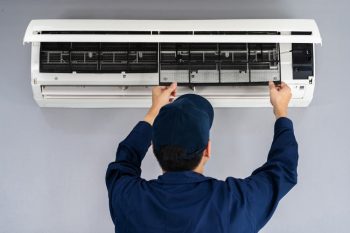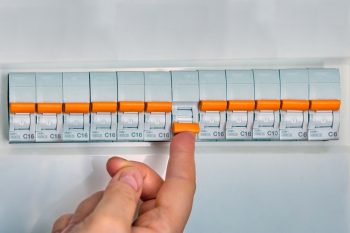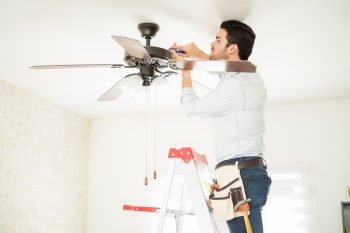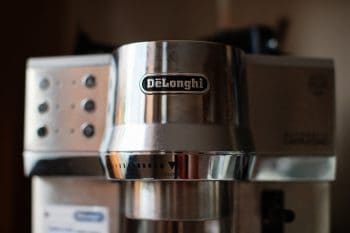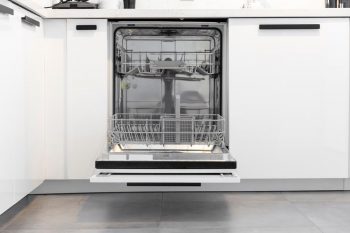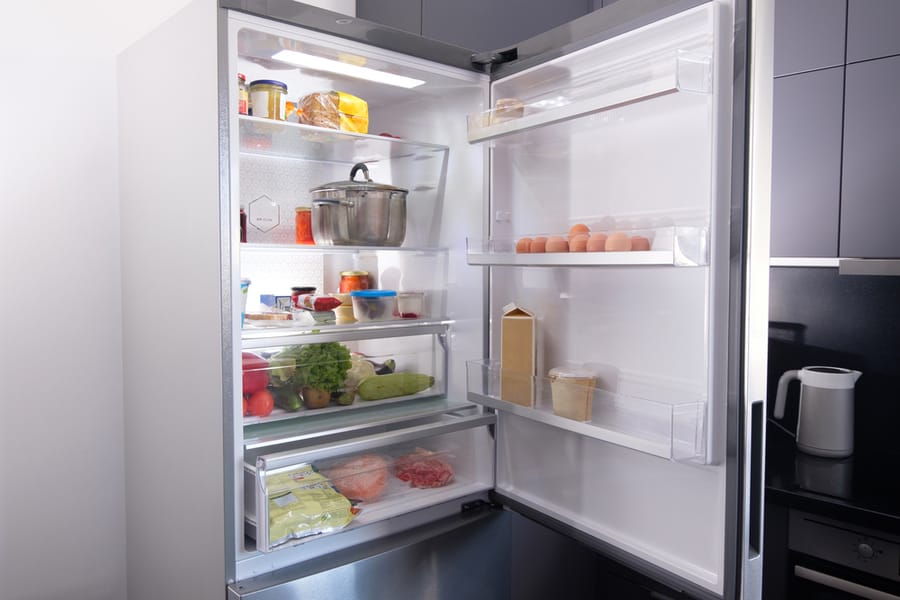
The refrigerator door should remain closed for it to operate efficiently. However, the door can remain open for a few minutes when you place food inside or remove it from the refrigerator.
Leaving your refrigerator door open for a long time affects its cooling and eventually compromises the safety of your food. Besides, you incur higher electricity costs. Modern refrigerators are designed to automatically close their doors if you leave them open for a while.
Two things make your refrigerator door close automatically; the magnetic strip on its sealing gasket and being straightly tilted backward.
Refrigerator doors are made so they shut automatically when you leave them open. However, if you leave them wide open, they can not shut automatically. There are two reasons why your refrigerator door will close automatically:
- The magnetic strip on the sealing gasket helps it to seal tightly to the closing position.
- The door is tilted toward the back, so gravity helps it pull back and seal at the close position.
Neither of the two will help your refrigerator door to close automatically if you leave the door wide open.
The automatic closing of a refrigerator is very important as it ensures the device maintains a low temperature and prevents your food from spoiling.
When you open your refrigerator door, hot air from the external environment enters, causing the cold air to disappear.
As a result, the cooling effect gets compromised and makes its compressor overwork to maintain the temperature leading to higher electricity consumption.
Reasons Your Refrigerator Door Closes Automatically
1. The Refrigerator Door Is Slightly Tilted Backward
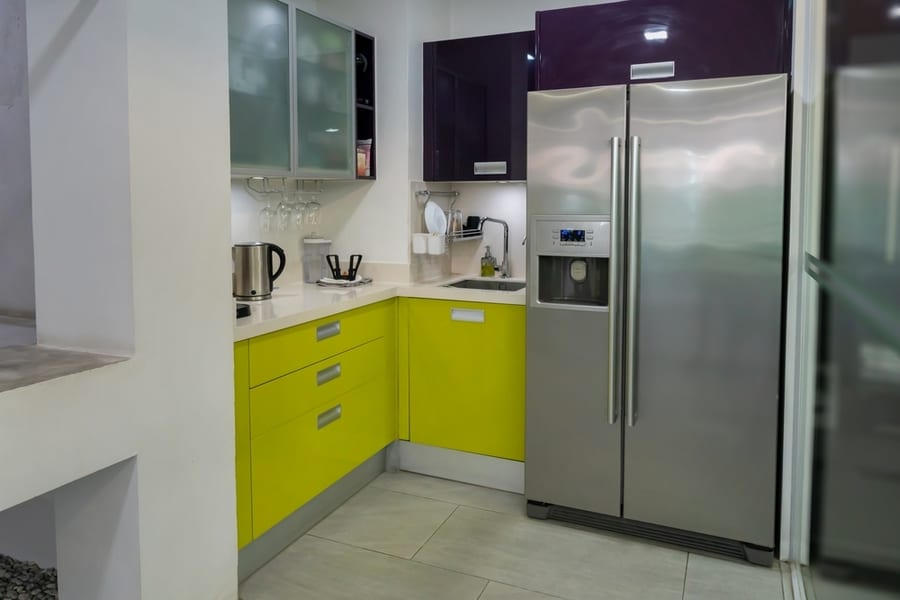
The door being tilted backward allows the force of gravity to pull it back open door until it seals tightly against the closed position.
2. The Magnetic Strip on the Sealing Gasket
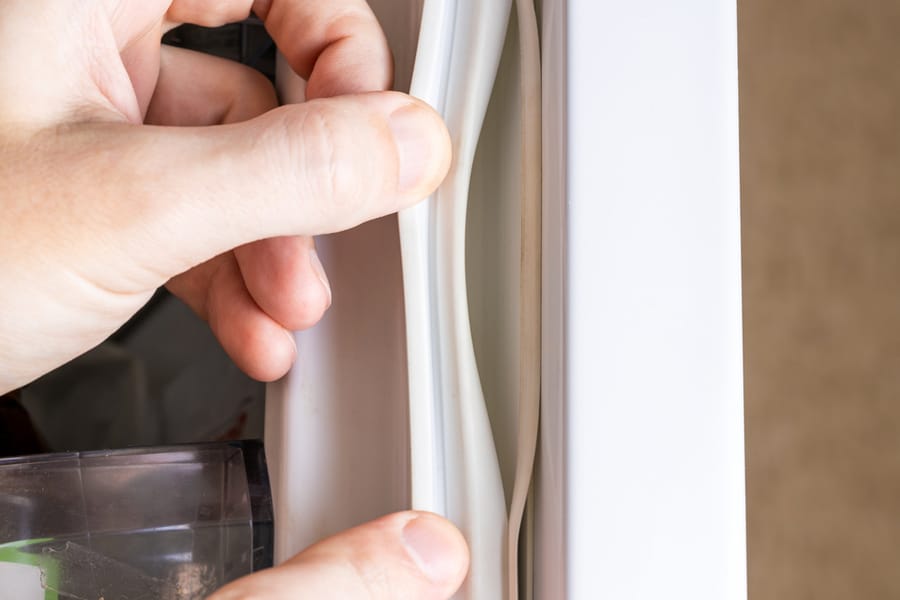
This magnetic strip helps the door to pull back to the closed position and seal tightly against the frame.
When you leave your refrigerator wide open, neither of these reasons will help the door shut automatically. Although it is critical to ensure the refrigerator door remains closed all through.
However, leaving it open for a long time affects its internal temperature and may spoil all the stored content.
How Refrigerator Door Works
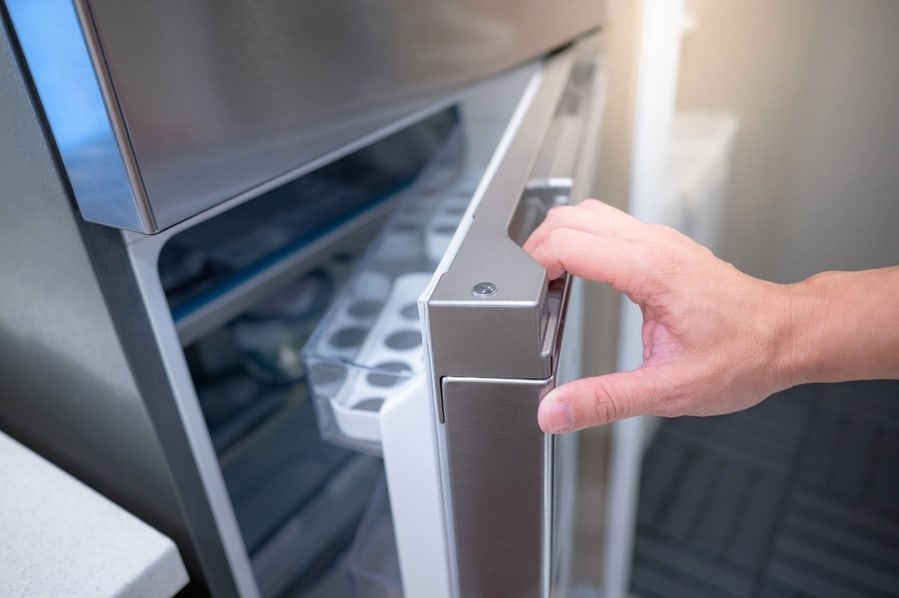
The refrigerator door is magnetic, which is why magnetic materials attach to it.
Initially, the refrigerator doors were not magnetic; instead, they had handles for opening and closing. However, there were several unfortunate cases involving children and refrigerators.
The USA passed the refrigerator safety act in 1956 that made it mandatory for refrigerator manufacturers to make doors open from the inside leading to the change in the door design.
Manufacturers added weak magnetic strips to the refrigerator doors to ensure they tightly seal with the gasket, yet it opens easily from the inside.
The role of the gasket is to seal the air inside the refrigerator, ensuring the air remains cool to the food to remain fresh at low temperatures.
Importance of Keeping Refrigerator Door Closed
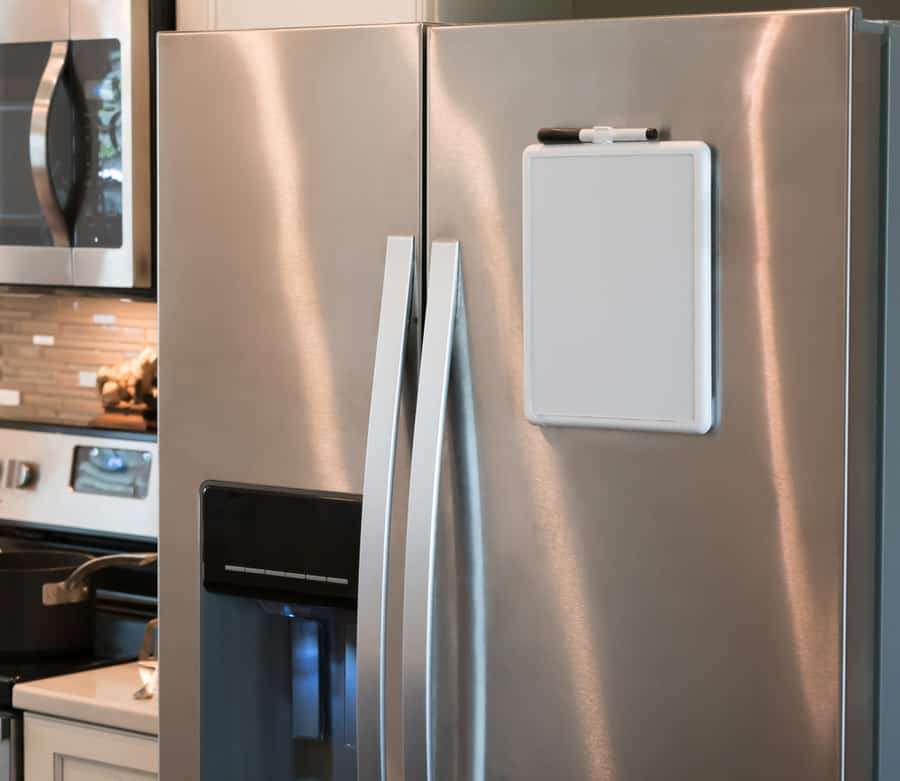
A refrigerator is an appliance that keeps your food safe by extending the lifespan of all the content inside at a low temperature. Therefore, your food can not get worse as fast as it would at room temperature.
This appliance maintains a steady temperature below 40 degrees Celsius. Bacteria that make your food spoil, leading to food-borne diseases, can not survive at such temperatures.
Whenever the temperature of your refrigerator increases, it creates a conducive environment for microorganism growth, damaging the stored food.
You should keep the refrigerator door closed to maintain a consistently low temperature because it traps cool air inside and keeps the food fresh.
If you open its door, the cold air escapes, and warm air from the external environment enters it, affecting its cooling efficiency because the temperature will rise, especially when left open for a long time. On the other hand, opening for a short while does not affect its cooling efficiency.
The opened refrigerator door causes the compressor to work extra hard to maintain a low temperature, consuming a lot of power during the process. As a result, you end up paying an extra amount for the electricity.
Should a Refrigerator Door Shut Automatically?
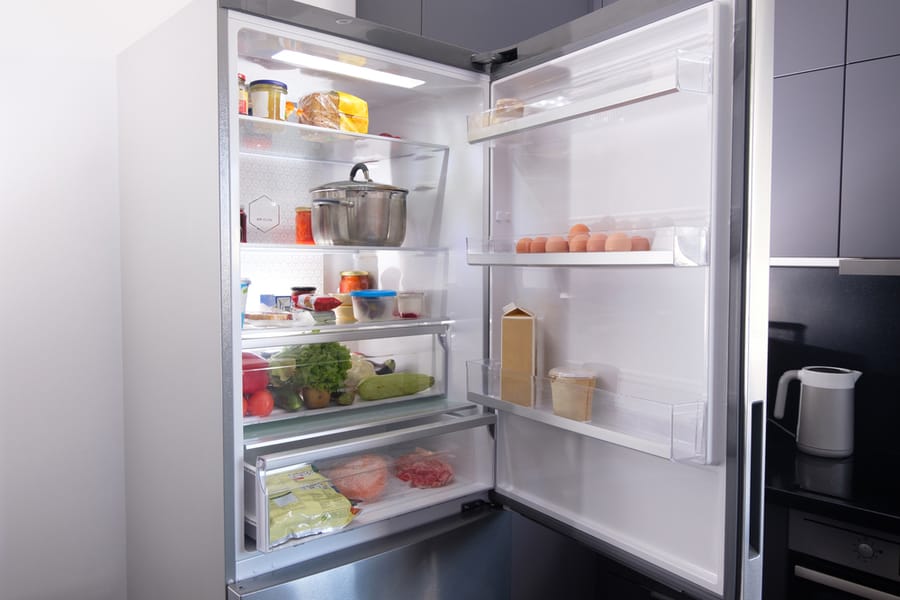
It is hard for a wide-opened refrigerator door to close automatically. However, it can close automatically and seal tightly against the wall when opened a bit.
The gasket rubber is all over the refrigerator door edges forming an air-tight seal with the door to ensure the air remains cold inside the device.
The gasket should always be clean and tight for the door to close. Ensure the gasket does not move away from the groove.
When you leave the refrigerator door open, and it does not shut automatically, touch its gasket to see if it is loose or dirty. If it is dirty, use soapy water to remove the dirt. If it is loose, nudge it back into its right position.
The gasket could be damaged or cracked if your refrigerator is too old. In such a scenario, you have to replace the gasket to make the door shut tightly.
If the gasket is not the cause of the problem, It may be due to any of the following challenges:
- Overloaded door: When you put heavy items on the door shelves, they weigh the door downwards, causing misalignment. Reducing these items can resolve the problem and keep the door closed.
- Stuck closing hinge: You can replace it if it is malfunctioning. However, you can seek professional help if you cannot do it.
- Blocked door by stored Items: You can try repositioning the contents inside the refrigerator until the door shuts.
- Uneven refrigerator level: Ensure its base is even whenever you move the refrigerator. You should rotate the leveling feet to ensure it is even and the door can shut automatically.
How To Stop a Refrigerator Door From Closing
When loading your items into the refrigerator, you may want the door to remain open until you are done. However, it can be frustrating if it closes after a few minutes.
The following are the two ways to keep the refrigerator open:
1. Adjusting the Refrigerator Level
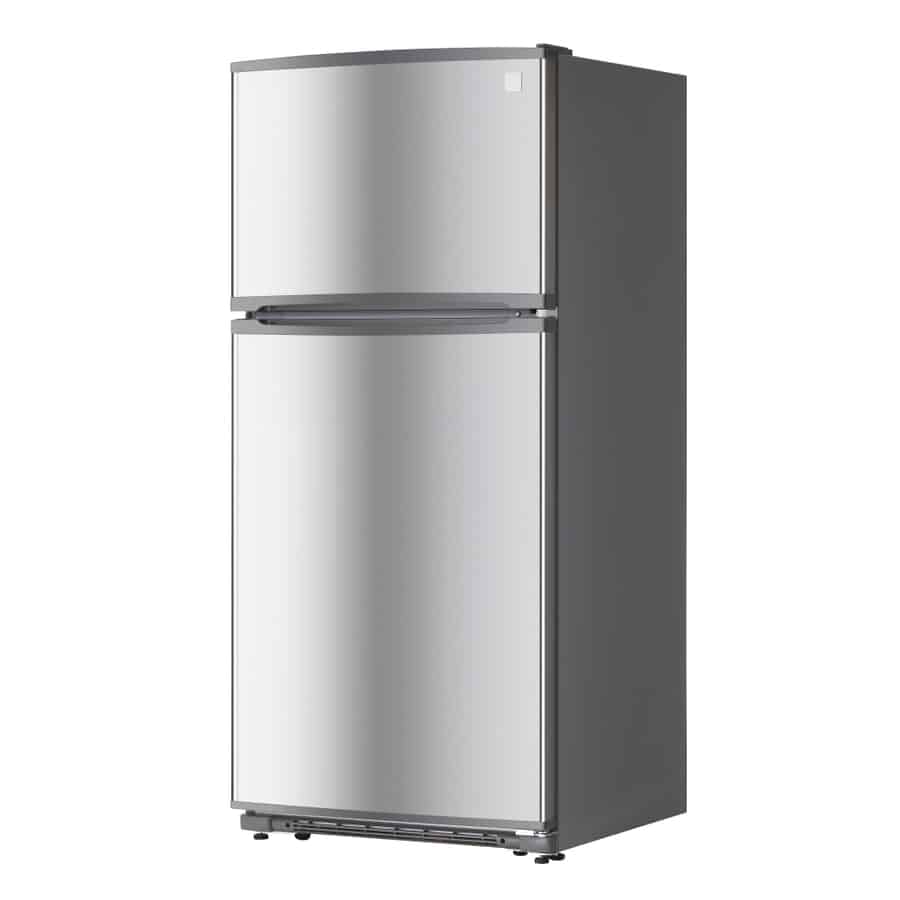
An uneven base makes the refrigerator door close automatically. Ensure its base level is not tilted because the door shuts quickly if the front feet are higher than the rare feet.
The leveling screw at the base can help you resolve the problem to keep it at the correct level.
2. Opening the Door Wide Open
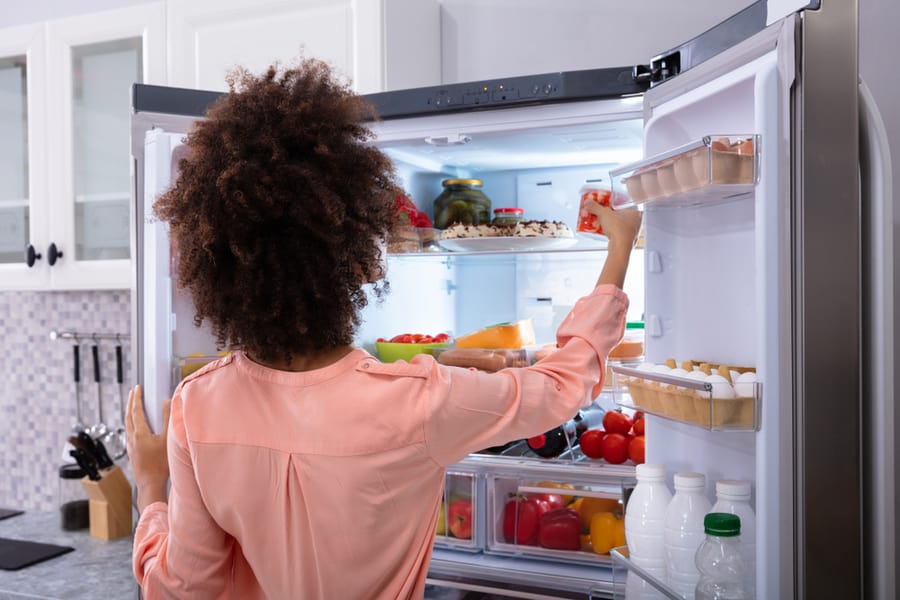
When you open a refrigerator door at 45 degrees and below, it can close automatically, but if you open it wider, it will remain open until you shut it.
Conclusion
Older refrigerator doors could not close automatically because they had handles to open and close them.
However, they were dangerous to little children forcing the USA to enact the refrigerators act, which was a mandate for all manufacturers to design doors that open from the inside. As a result, manufacturers changed the refrigerator door design.
They used a weak magnet along the gasket to ensure the door opened from the inside and remained tightly closed. Also, they had to tilt the door toward the back for gravity to help it shut when left open.
Automatic closure of a refrigerator door is essential as it ensures the cold air inside remains sealed and the stored food remains fresh at low temperatures.
Leaving the refrigerator door open for a long time interferes with its cool temperature because the cold air disappears. In contrast, the warm air from the surrounding environment enters, causing the internal temperatures to rise.
As a result, the compressor works extra hard to maintain the temperature causing the refrigerator to consume a lot of power, leading to an excess electricity bill.

